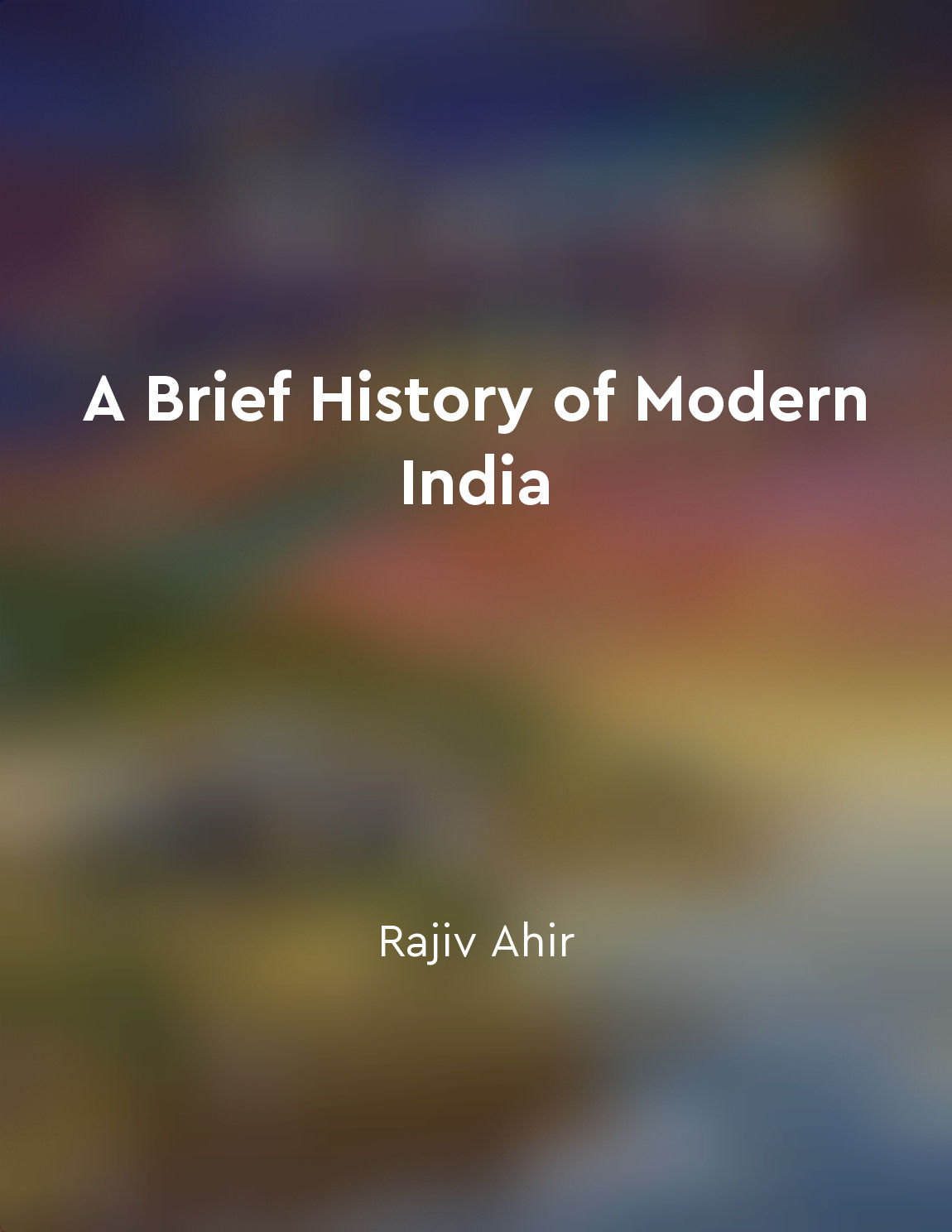Rise of BJP and coalition politics from "summary" of A Brief History of Modern India by Rajiv Ahir
The rise of the Bharatiya Janata Party (BJP) marked a significant shift in Indian politics during the late 20th century. The BJP emerged as a prominent political force in the 1980s, capitalizing on its Hindu nationalist ideology and anti-Congress sentiment. With charismatic leaders like Atal Bihari Vajpayee and L. K. Advani, the party gained popularity among the masses, especially in northern India. The BJP's ascent to power was accompanied by the phenomenon of coalition politics. As the party did not have a clear majority in the parliament, it had to form alliances with other regional parties to govern effectively. This marked a departure from the single-party dominance that had characterized Indian politics for decades. The BJP's ability to form coalitions with diverse regional parties showcased its adaptability and political acumen. The National Democratic Alliance (NDA), led by the BJP, emerged as a formidable coalition in Indian politics. The NDA included parties with varying ideologies and regional interests, but they came together under the common goal of challenging the Congress party's dominance. This coalition politics proved to be successful for the BJP, as it was able to form governments at the center and in several states. The rise of the BJP and coalition politics also had broader implications for Indian democracy. It signaled a shift towards a more pluralistic political landscape, where regional parties played a crucial role in shaping national policies. This decentralization of power challenged the traditional center-state dynamics and gave voice to diverse regional aspirations.- The rise of the BJP and coalition politics reshaped the Indian political landscape in the late 20th century. It brought about a new era of multi-party democracy, where alliances and negotiations became key components of governance. The BJP's ability to navigate through the complexities of coalition politics highlighted its political savvy and strategic depth.
Similar Posts
Understanding cultural and religious diversity is crucial
In today's globalized world, where interactions between people from different cultures and religions are becoming increasingly ...
Dr. Ambedkar's leadership style emphasized listening to all voices and finding common ground
Dr. Ambedkar's approach to leadership was distinctive in its emphasis on inclusivity and consensus-building. He believed in the...

Future prospects and challenges for India
Looking ahead, India is poised for significant growth and development in the coming years. With a large and youthful population...

Role of Indian National Congress in the freedom struggle
The Indian National Congress played a crucial role in the freedom struggle against British colonial rule. It served as a platfo...
Independence brought challenges of economic development
After gaining independence, India faced numerous challenges in its quest for economic development. The country had to rebuild i...

